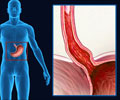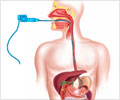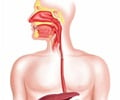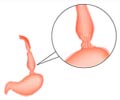Researchers have discovered that a gene thought to be associated with cancer development can be a tumour suppressor gene in mice.

"For cancer to spread, some genes are activated, while others that would prevent cancer growth are prevented from doing their jobs. The cancer research community has thought that the gene p120, falls into the latter category," said Douglas Stairs, assistant professor of pathology, who completed this research at University of Pennsylvania and is now at Penn State College of Medicine.
"In this research, the loss of the p120 gene led to the development of cancer."
Stairs worked with colleagues at Vanderbilt University to create a mouse model to study the gene. Called a knockout mouse, these specially bred mice do not have the p120 gene in their mouths and esophagi. Researchers then studied the mice to see if tumours formed in those areas. In 70 percent of p120 knockout mice, tumours formed.
Researchers observed that mice that had cancer had hyperactivated immune systems. Absence of p120 led to the production of immune cells that are pro-tumour generating and pro-cancer forming.
"For cancer, the immune system can both help and hurt the body," said Stairs.
Advertisement
Researchers learned through further investigation that these "bad" immune cells traveled to the esophagus and improperly activated fibroblasts. Fibroblasts are cells that create the support structure for tissues. They are most noticeably activated when tissue damage occurs and scarring is a result of the fibroblast cells activating. Fibroblasts are also activated in cancer patients.
Advertisement
"Each feeds off the other," said Stairs.
"It creates an environment that is very permissive for cancer development," added Stairs.
The study has been published in the journal Cancer Cell.
Source-ANI















